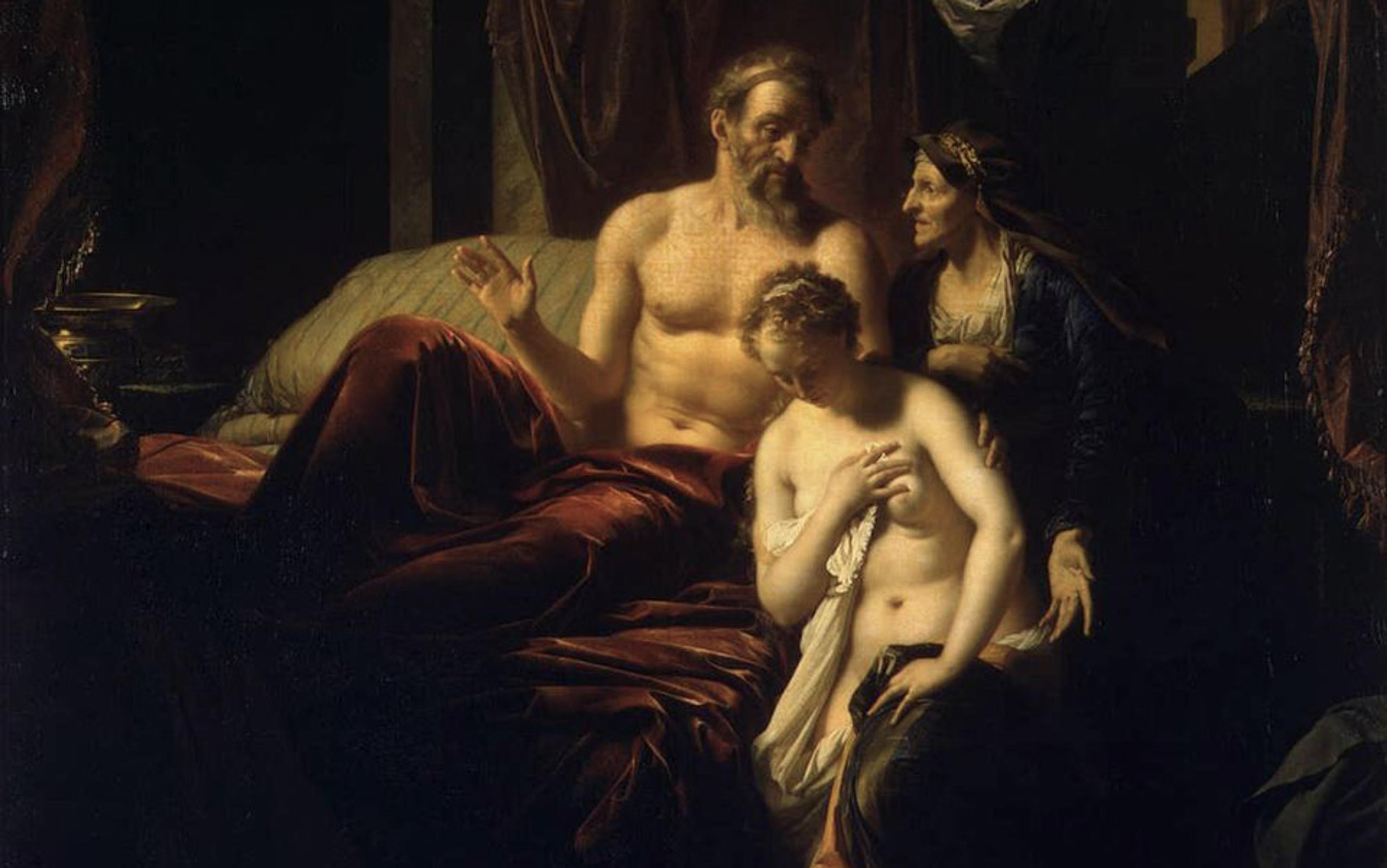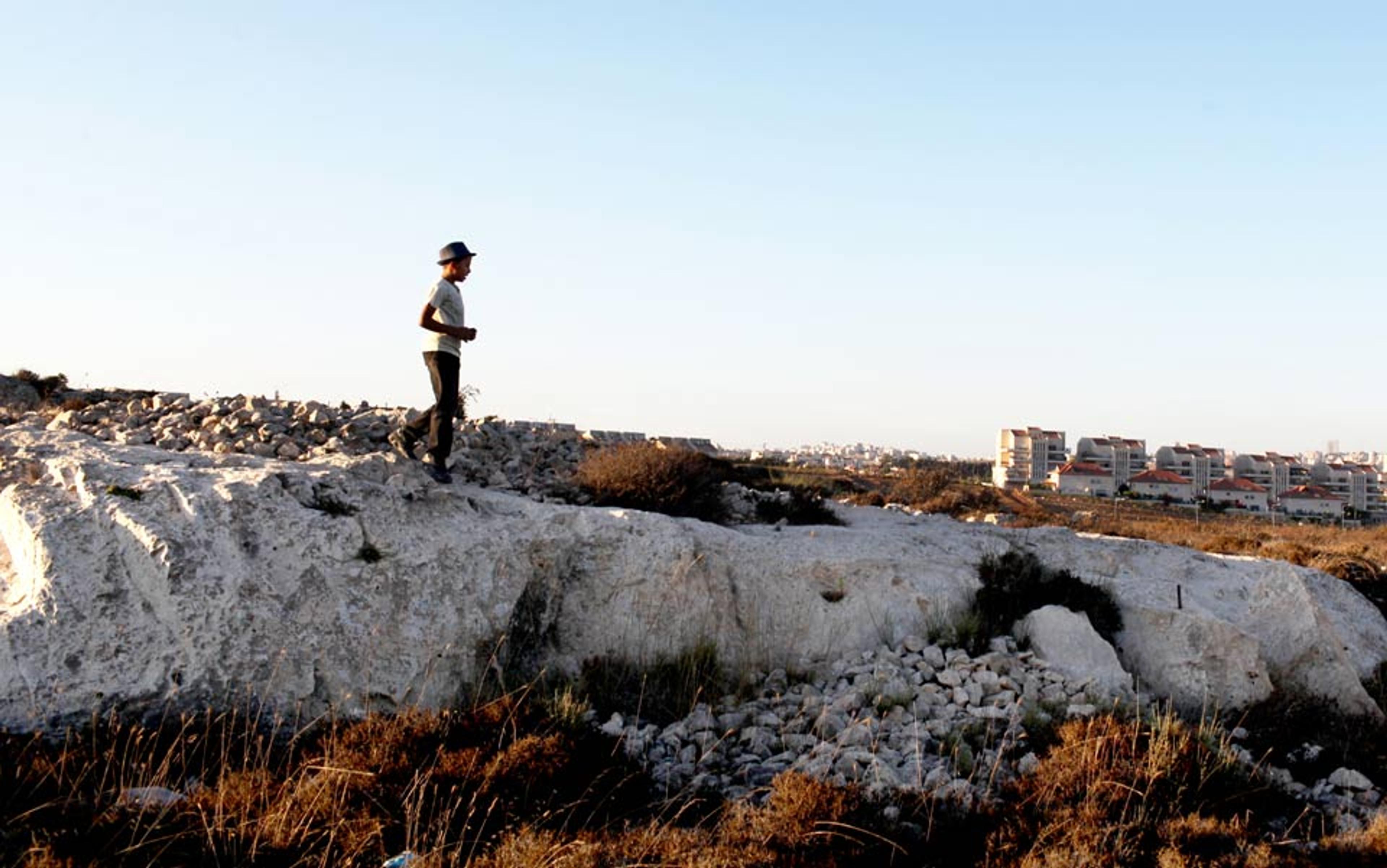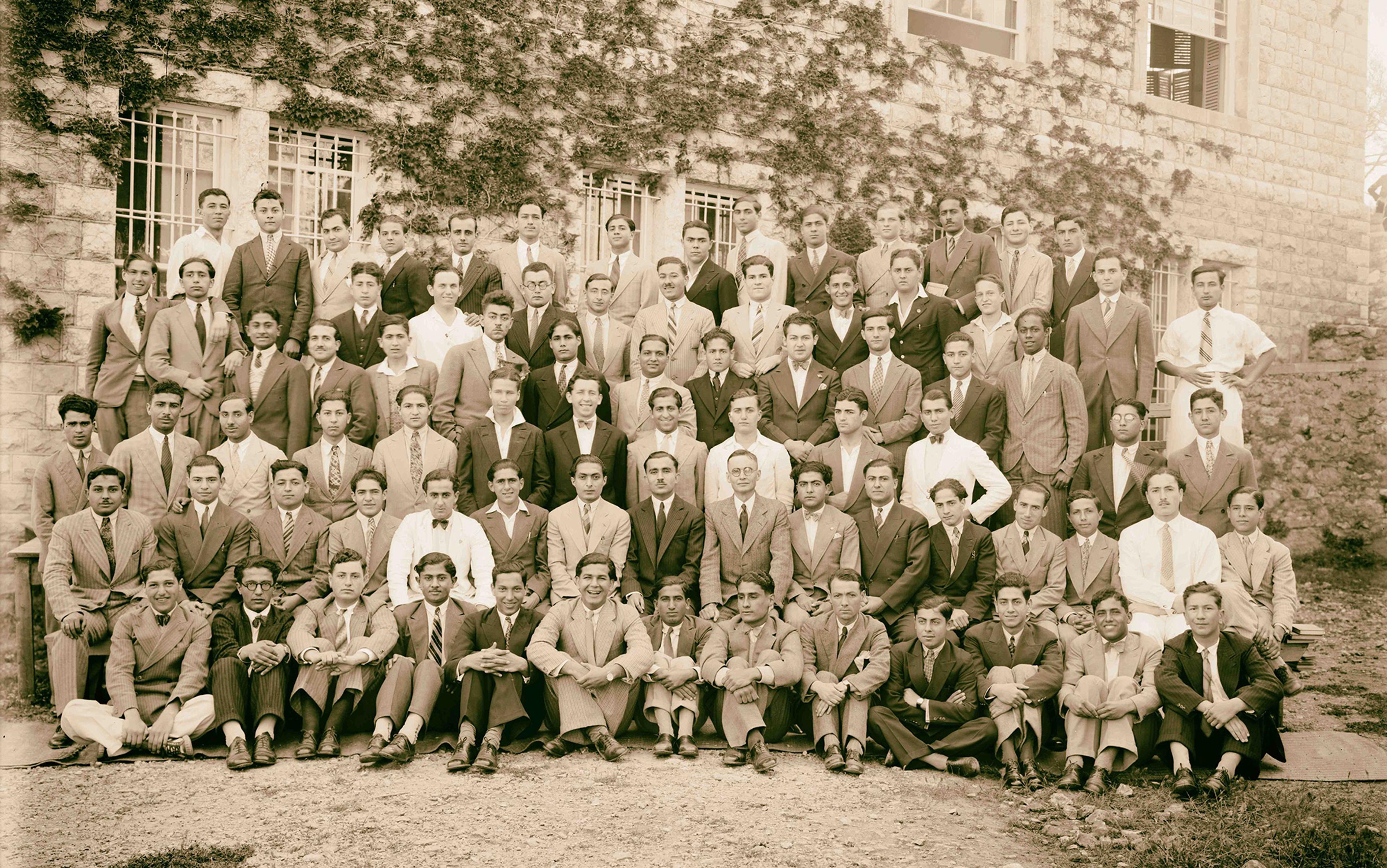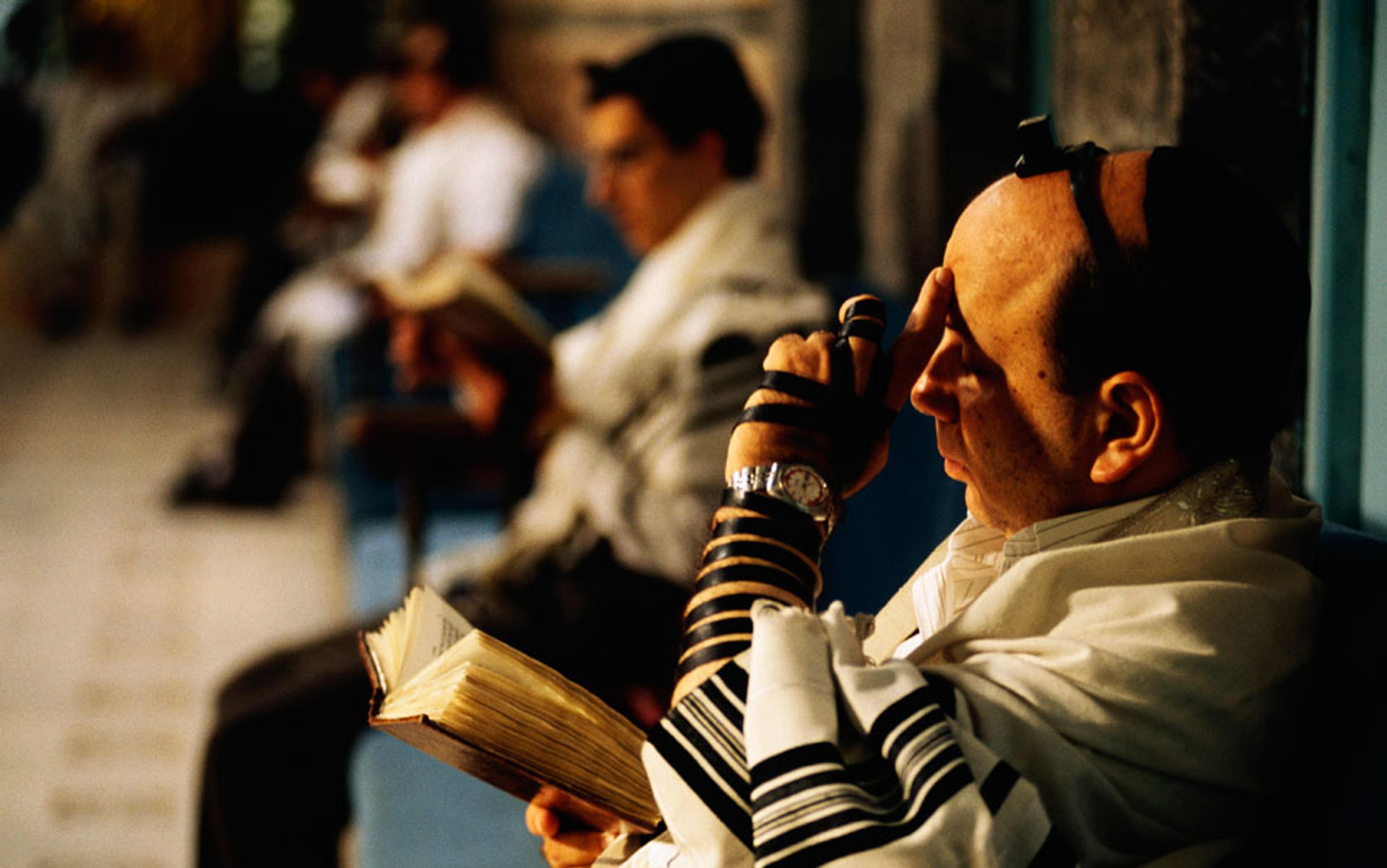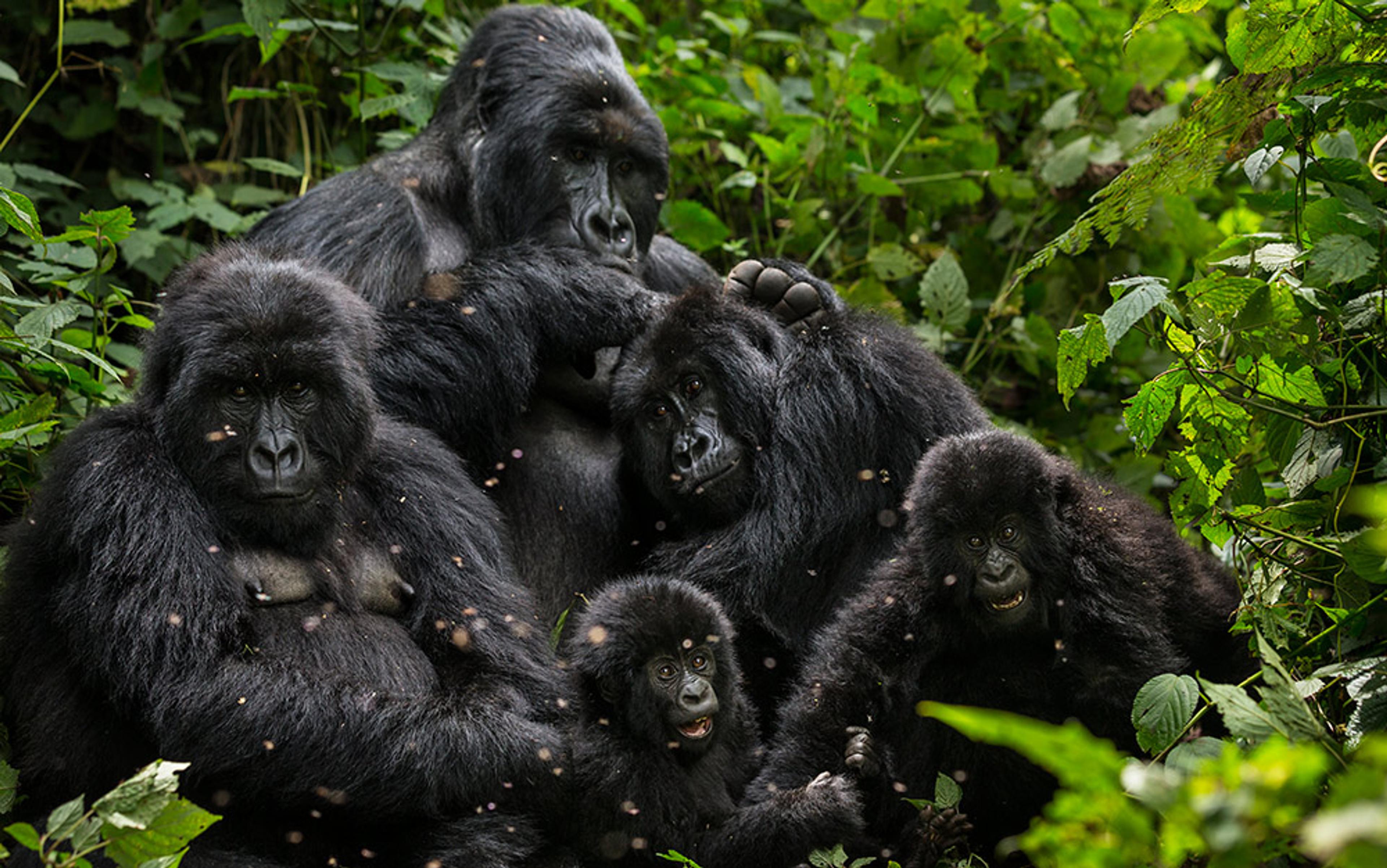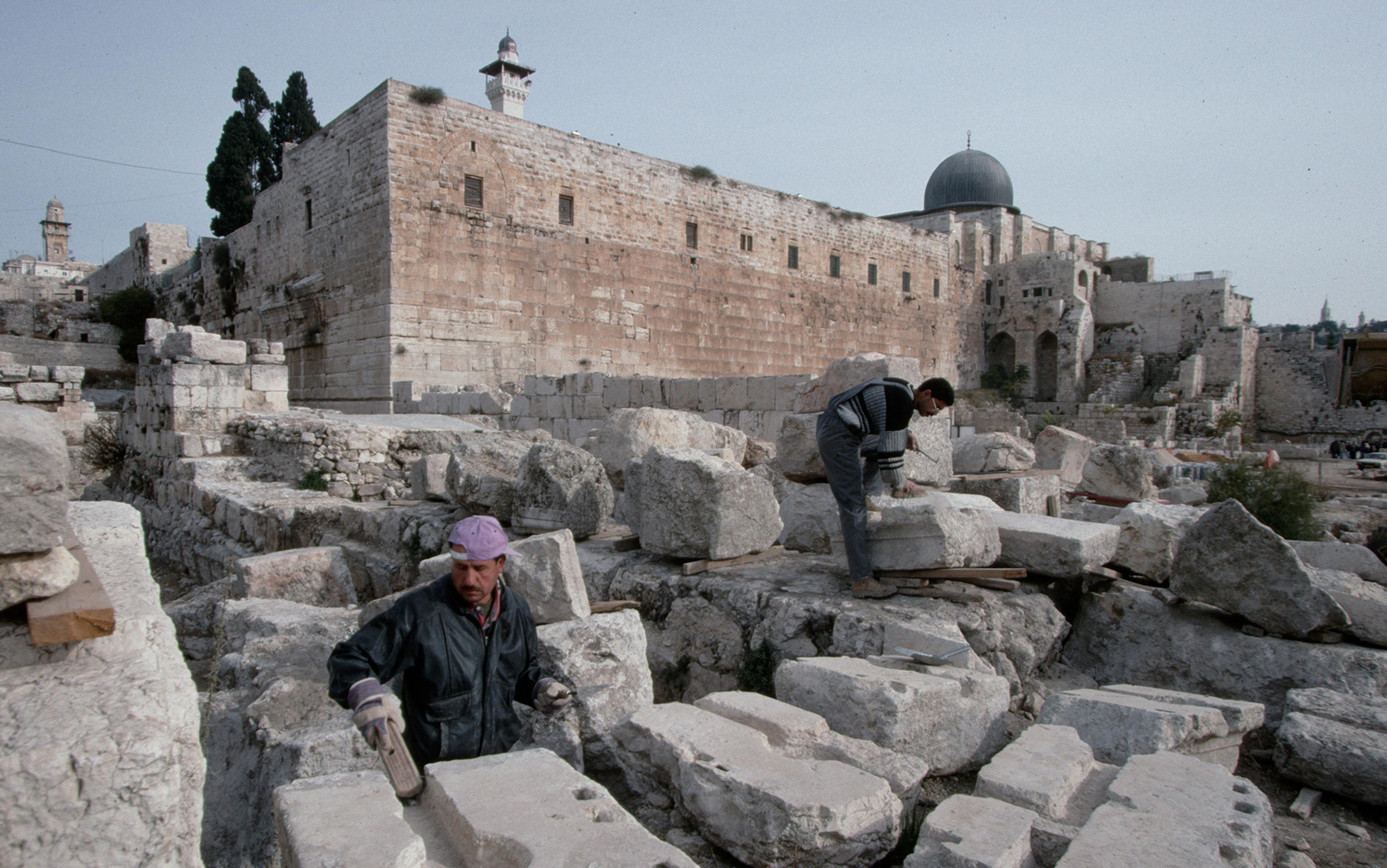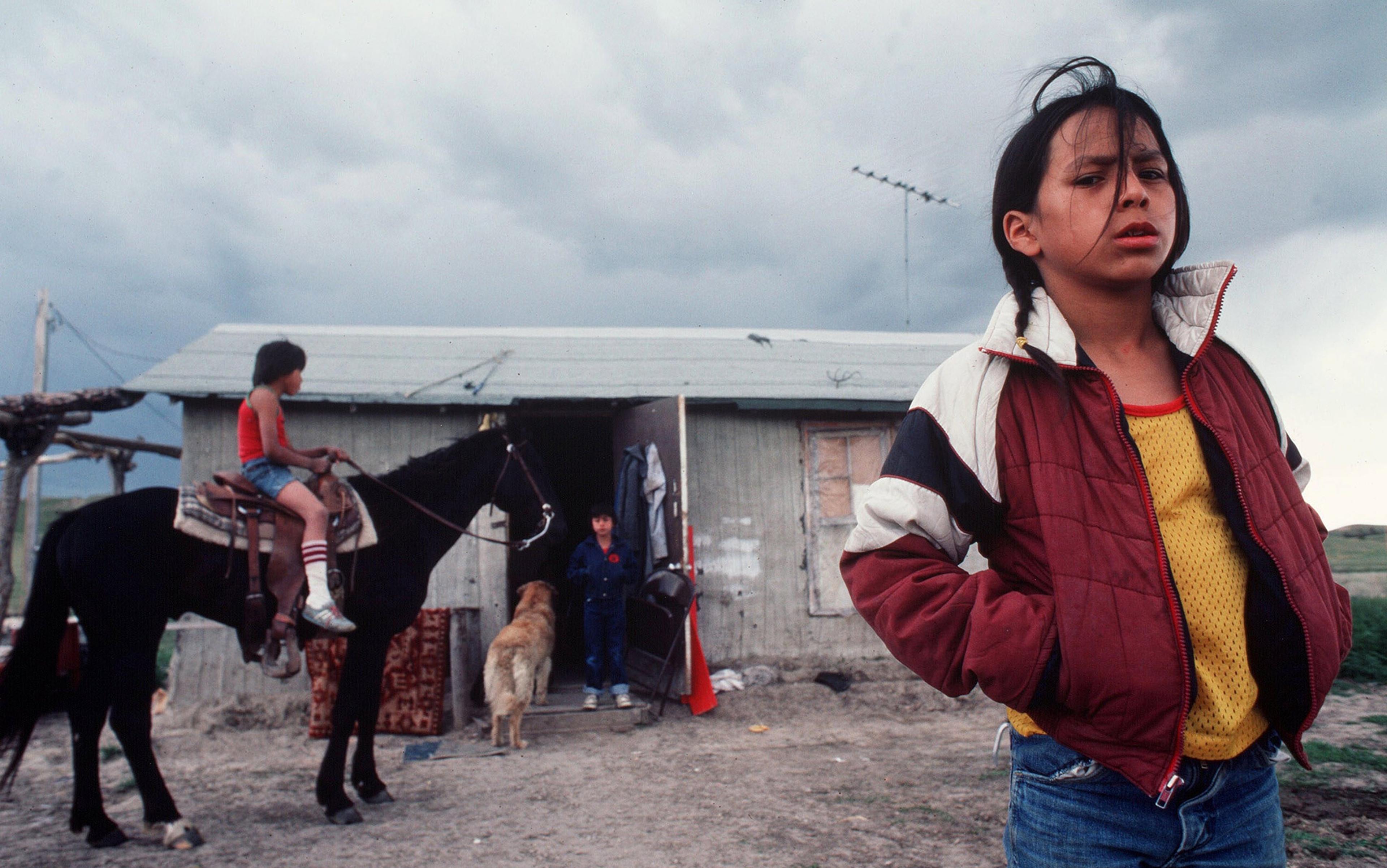In the past few years I have spent a lot of time in the West Bank city of Hebron, where communal relations between Israeli Jews and Palestinian Muslims could hardly be any worse; and I have often wondered why we expect the adherents of the Abrahamic faiths to get along, when their revered ancestors, described in the Book of Genesis, plainly didn’t.
The question is particularly acute in Hebron, for it is the wellspring of the three great Abrahamic faiths — Judaism, Christianity, and Islam. Genesis tells us that Abraham settled in Hebron after God commanded him to leave his home in Mesopotamia and travel to the promised land, and he and his family are believed to be interred in the Tomb of the Patriarchs — the city’s holiest shrine. Hebron is holy to Jews, who regard it as their birthplace, and to Muslims, who call it Al-Khalil, the ‘friend’, in honour of the very same Abraham, whom they revere as ‘a friend’ of God. Though Christianity is also an Abrahamic faith — the first verse of the New Testament claims Jesus Christ as ‘the son of Abraham’ — Judaism and Islam place much greater emphasis on this line of descent.
According to Genesis, Abraham had two sons: the older, Ishmael, became the father of the Arabs, and the younger, Isaac, became the father of the Jews. Jews and Muslims are thus ‘brothers with different mothers’, as a Palestinian man once said to me. This shared heritage has brought the faiths together in the most literal sense: Hebron is the only city in the Israeli-occupied West Bank that is home to both Israelis and Palestinians. But cohabitation has not led to reconciliation or mutual understanding. People often lament the fact that the ‘Children of Abraham’ are not at peace in the city of their birth, yet the tensions so apparent in Hebron are not out of keeping with the city’s mythic past.
The Book of Genesis is not the high-minded religious tract that many people expect. As the satirical American cartoonist Robert Crumb recognised when he produced a comic-book version in 2009, it is a riotous family drama, rife with feuds and sexual rivalries of all kinds. Crumb intended to lampoon the story of Adam and Eve, yet the man famed for his counter-cultural take on the US comic — he established the iconic rag, Weirdo — found that Genesis was beyond parody: ‘It was so strange in its own way that there was no need to do any send-up or satire of it,’ he said in an interview in 2010.
Unlike religious literalists whose own comic-book versions modernise and bowdlerise the book, Crumb’s view that Genesis ‘is the word of men’ allowed him to render it in all its richness, bawdiness and incoherence. Crumb is often criticised for his portrayals of women and ethnic minorities, and he drew Adam, Eve and the other Biblical matriarchs and patriarchs, in his inimitable style, with protuberant buttocks and torpedo-like breasts. His fans, hoping for a more ‘outrageous take-off’, were disappointed. But I happen to like the way Crumb adapts familiar versions of the epic and reinvigorates the old stories by reimagining not only the text, but also its conventional representations.
Above all, Crumb reminds us that Genesis is a great human drama. He shows the rage on Cain’s face as he kneels above Abel, blood dripping from the stone in his murderous hand, and the bemusement of the naked Noah, staggering drunkenly around his tent after the floodwaters have receded. Of course, the familial intrigues grow more tangled once Abraham is introduced in Chapter 11, along with his wife Sarah, whom we instantly discover is ‘barren’. Although God grants her a son at the age of 90, it is her earlier and cunning attempts to produce an heir that dramatise the mythic origins of the ethnic struggle that continues to this day.
At the height of her ordeal, Sarah, middle-aged and menopausal, tells Abraham to ‘go in unto’ her Egyptian maid, Hagar, saying: ‘It may be that I may obtain children by her’. Such arrangements might have been conventional when Genesis was composed, but that doesn’t mean that its authors were unaware of their power to create resentment. As soon as Hagar conceives, Sarah (in Robert Alter’s recent translation) ‘seemed slight in her eyes’. Being supplanted by Hagar is bad enough: being ‘despised’ by her (says the King James now) is more than she can bear.
When a somewhat exasperated Abraham tells her: ‘thy maid is in thine hand; do to her as it pleaseth thee’, Sarah is unforgiving, harassing the pregnant Hagar until she runs away. Yet God does not abandon Hagar: an Angel of the Lord finds her wandering in the wilderness and tells her to return home. She and her unborn child, he says, are part of God’s plan — her descendants ‘will be beyond all counting’. Instructing Hagar to call her son Ishmael, he prophesies that ‘he will be a wild ass of a man — his hand against all, the hand of all against him’.
Hagar duly returns to Abraham, and Ishmael is born. His significance to his father is never in doubt: when God tells Abraham that the 90-year-old Sarah will bear a son, Abraham points out that he already has one (‘O that Ishmael might live before thee!’). And when Abraham is circumcised, in the first performance of the ritual that seals the covenant between God and His people, Ishmael is circumcised with him.
However, the feud between Abraham’s wives revives after Isaac’s miraculous birth. At the ‘great feast’ thrown by Abraham the day Isaac is weaned, Sarah is incensed by Ishmael ‘mocking’ something or someone (some commentators suggest that her anger was aroused by Ishmael’s ‘playing’ with his new brother, claiming that she couldn’t tolerate their intimacy). In a blaze of jealousy and vindictiveness, Sarah tells Abraham to ‘cast out this slave-girl and her son’, and God advises him to obey. ‘Whatever Sarah says to you, listen to her voice,’ He says.
He is a God of the household squabble and the family row. A God you can consult about your marriage, and questions of real estate
Here, as elsewhere, one gets the impression that the God of Genesis has infinite patience for the domestic affairs of matriarchs and patriarchs. He is not a remote divinity or a sky-dwelling immortal: He is as directly involved in the lives of His people as the Greek gods were in theirs. He is a God of the household squabble and the family row. A God you can consult about your marriage, and a God who gets involved in questions of real estate. He tells Abraham that he and ‘his seed’ shall receive the ‘whole land of Canaan’ – ‘through Isaac your seed shall be acclaimed’. Yet he adds that Ishmael also is his ‘seed’, assuring Abraham that he will make him ‘a nation’, too.
Ishmael ‘dwelt in the wilderness’ (after Abraham banishes him and his mother once again), and never set foot in Canaan again. He married a woman from Egypt, like his mother, and had 12 sons — ‘princes according to their nations’. When he died, aged 137, he was gathered ‘unto his people’ who ‘dwelt from Havilah unto Shur’ — an area that is sometimes said to correspond to the Arabian peninsula.
The same themes — infertility, sibling rivalry, female jealousy — are endlessly reconfigured throughout successive stages of Genesis’s family saga. Abraham’s son Isaac also takes a barren wife, Rebekah, and again they rely upon a divinely-aided conception. Their twin sons Jacob and Esau relive the fraternal discord that marked relations between Isaac and Ishmael, and Cain and Abel. And in the next generation, Jacob’s wife Rachel, another barren woman, relies on a surrogate handmaid, just as Sarah had done.
I am particularly fascinated by the recurrence of infertility through the generations, for my son was born as a result of fertility treatment shortly before I went to Hebron for the first time. The knowledge that Abraham and Sarah, Isaac and Rebekah, and Jacob and Rachel had suffered the same frustrations as my wife and me made them more real to me than they had ever been before. Of course, the solutions our society proposes are very different: while we enjoyed the benefits of post-enlightenment medical science, the inhabitants of ancient Judea were told that obedience to the priestly laws was the best way to satisfy the primal urge to reproduce.
Yet there’s a narrative richness to the stories that goes beyond reinforcing patriarchal values, or the primacy of the temple cult. I am moved to find that the infertile women are — in every case — their husbands’ first-chosen and best-loved wives, and I’m intrigued by the way that the God of Genesis insinuates Himself into the most intimate details of peoples’ marriages — even if the idea of male infertility clearly never occurred to the Biblical authors.
In her influential book Sarah the Priestess (1984), Savina Teubal suggests that the complex status of women such as Sarah and Rachel, who are infertile yet empowered, betrays the residual influence of a matriarchal order pre-existing in Mesopotamia and Egypt. Women’s marital and reproductive affairs, however, still serve God’s design, as Jacob’s complex marriages to Laban’s daughters reaffirms. To begin with, Jacob’s ‘hated’ wife Leah makes the most of God’s strategic help (He ‘opened her womb’) by having four sons, before Rachel sidesteps her barrenness, as her grandmother Sarah did, giving Jacob her handmaid Bilhah ‘as a wife’. After Bilhah has two sons, Leah gives Jacob her handmaid Zilpah, who has two sons as well. Then Leah herself has two more sons and a daughter. Finally, God takes pity on Rachel and ‘opened her womb’: she has a boy called Joseph and dies giving birth to another, Benjamin.
The many to-ings and fro-ings, which Crumb believes were ‘intentionally meant to provide bedroom-comedy relief’, furnished Jacob with 12 sons who went on to found the 12 tribes of Israel. They are significant figures in the Biblical story, and Genesis devotes several chapters to them. As for Jacob’s only daughter, Dinah, she catches the eye of a local prince called Shechem, who defiles her, then decides he loves her, before finally asking Jacob for her hand. However, two of Dinah’s brothers, Simeon and Levi, oppose the marriage and attack the city of Shechem, capturing the women and children and killing ‘every male’. Jacob is furious, but Simeon and Levi are unrepentant. During a family showdown, one of them demands of Jacob: ‘Should he deal with our sister as with an harlot?’ The line might have been lifted from The Sopranos, and its startling directness reaffirms the turbulent nature of family life with which the God of Genesis is so intimately involved.
The epic saga of national renewal described in the Book of Exodus via the story of Joseph, and celebrated every Passover, has its roots in Genesis’s stories of infertility and marital and fraternal rivalry. Similarly, the Hajj, or the pilgrimage to Mecca, which is one of the five duties every devout Muslim is supposed to observe, originates in Hagar’s ordeal in the desert (after her second expulsion). Her despairing hunt for water is re-enacted by the pilgrims walking back and forth along a covered promenade in the Masjid al-Haram — the mosque surrounding the Kaaba, Islam’s holiest shrine. And her moment of angelic salvation is re-enacted by drinking from the well that was supposed to have appeared when said angel struck the ground with his foot.
Genesis was always intended to evoke memories of an older, purer time, when a man such as Abraham could be on intimate terms with God
One reason the Abrahamic stories have transcended time and place so successfully is that they were not intended to reflect contemporary realities. Recent scholarly analysis suggests that the descriptions of Abraham’s life are more suggestive of conditions during the first millennium BCE when the stories were written down, than those of the 18th century BCE, when Abraham is supposed to have lived. In other words, they were not folk tales handed down from generation to generation, but contemporary inventions, or folk tales infused with contemporary observations. There might have been similarities between Abraham’s life and the lives of his earliest audiences in ancient Judea — and also his audience in the Arabian peninsula, introduced to his deeds 1,000 years later by the visionary who founded a new faith by reasserting the principles of the old one. Yet the stories were always intended to evoke memories of an ancestral past, an older, purer time, when a man such as Abraham could be on intimate terms with God.
This intimacy is all the more remarkable given that Genesis contains many instances of God’s awesome power. When God visits Abraham to announce that Sarah will have a child at the age of 90, He arrives in the form of three men, whom Abraham treats like normal guests: he kills a calf, fetches bread and milk, and stands by while his guests sit under a tree and eat. Such domestic details makes the shift into the realms of prophecy easier to accept. The register changes when two of the three men walk across the plain to the condemned cities of Sodom and Gomorrah, leaving Abraham to his famous barter with God: he pleads with God not to ‘wipe out the innocent along with the guilty’ and drives down the number of righteous townspeople, who must be found if the town is to be saved, from fifty to ten.
In the event, God cannot find ten righteous men, so He destroys the ‘cities of the plain’ with fire and brimstone. This is the work of the other God of Genesis, the God who controls heaven and earth — whose interest in household affairs coexists with the power to redeem or destroy nations. He is a God to look up to, to appeal to when the wrongs of the world go unchallenged: a God you would be advised to obey.
That the matriarchs and patriarchs of old often fail to live up to His expectations only deepens the feeling that we are watching real people, who are frequently blind to their true interests. Indeed, such a turbulent background might explain why today’s Jews and Muslims, in places such as Hebron, do not treat their shared heritage as a source of commonality: in maintaining the family feud, they are preserving the spirit of the stories of Genesis — stories, moreover, in which the image of their God is found.
Communal relations in Hebron have not always been as bad as they are today. The two communities lived together peaceably for 400 years during Ottoman rule. Co‑existence came to an end only in 1929, when tensions caused by Jewish immigration resulted in riots throughout Palestine. The worst violence was in Hebron: on the night of 23 August, an Arab mob killed 67 members of its Jewish community, and soon after the British authorities evacuated the rest.
A small group of settlers returned to the city after Israel captured the West Bank from Jordan in the Six-Day war of 1967, and ever since the conflict has centred on the city’s religious sites and shrines. On 25 February 1994, a settler walked into the Tomb of the Patriarchs during morning prayers and shot dead 29 Muslims. Three years later, Hebron was partitioned. Today, settlers may enter the parts of the city controlled by the Palestinian Authorities only to visit a shrine, and it is not unusual to see Jewish worshippers walking through the streets escorted by soldiers, in a strange fusion of piety and militarism.
The Palestinians understand how settlers can co-opt the sacred to expand their presence in the city: one day, I set off with a Palestinian guide to find a well, mentioned in the Bible, where Abraham was supposed to have watched Sarah bathing. We couldn’t find it, and it transpired that the man who owned the house behind it had built a garage over it. He wanted somewhere to park his car, but that wasn’t the only motive: he was concerned that the settlers would add the well to the list of places to which they had visiting rights, and he wanted to pre-empt the possibility of them turning up at his front door.
Still, the legend of Isaac and Ishmael offers some grounds for hope. Genesis relates that Isaac met the exiled Ishmael only once, when they buried Abraham in Hebron; but Jewish tradition maintains he never forgot him. Isaac lived in the Negev beside the ‘fountain in the wilderness’ where the angel rescued Hagar for the first time. One evening, he had gone out to meditate in the field when he saw the camel train approaching, bearing Rebekah to Canaan. Tradition maintains that it was Ishmael who was on Isaac’s mind — that, thinking of his brother, he was rewarded with his wife — and yet the filial reconciliation he dreamed of never came. Perhaps it will be enacted symbolically by their heirs. If so, they will have overcome not only the entrenched political problems apparent in Hebron, but the enduring human weaknesses so graphically portrayed in the very stories in which Isaac and Ishmael were created.
